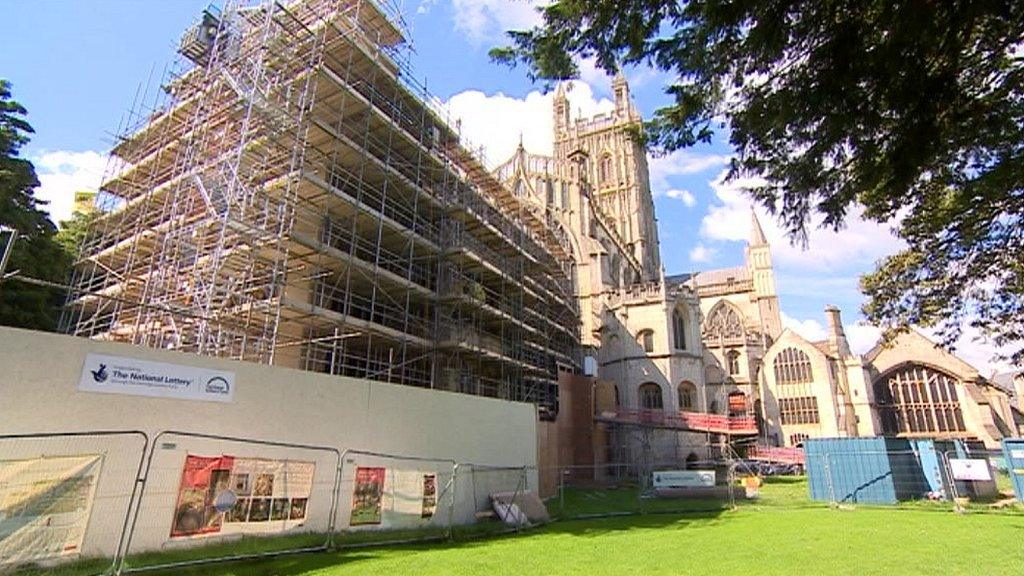Gloucester Cathedral: 12th century candlestick recreated using 3D printing
- Published
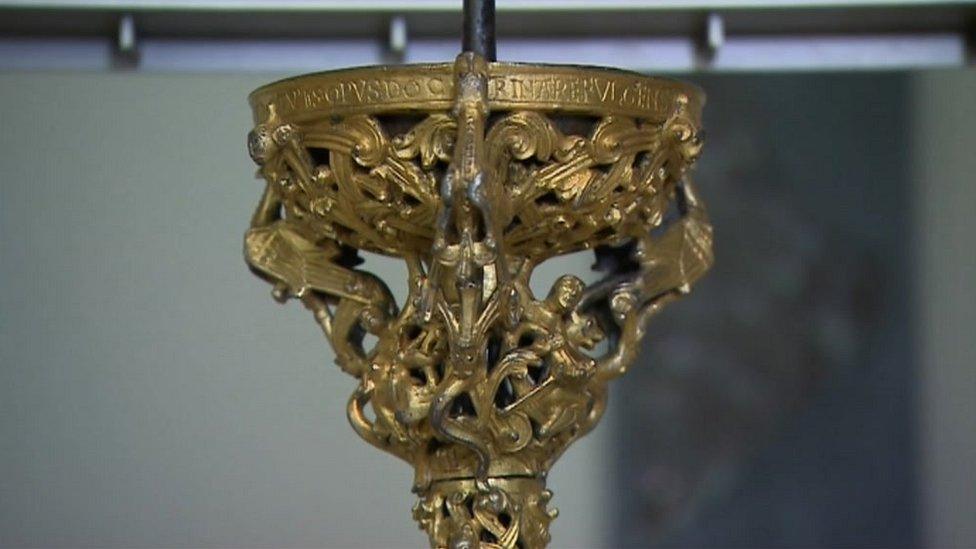
The original Gloucester Candlestick has been held in the Victoria and Albert Museum since 1861
A 12th Century candlestick will "return" to its home city of Gloucester after nearly 900 years after being recreated using 3D printing technology.
The original Gloucester Candlestick has been held in the Victoria and Albert Museum (V&A) in London since 1861.
It has been been replicated with modern scanning and 3D printing methods.
Two replica candlesticks have been made and will be displayed in Gloucester Cathedral, one in the gallery chapel and the other in the treasury.
The original gilded copper candlestick was made in about 1110 and commissioned by Abbot Peter for St Peter's Abbey in Gloucester.
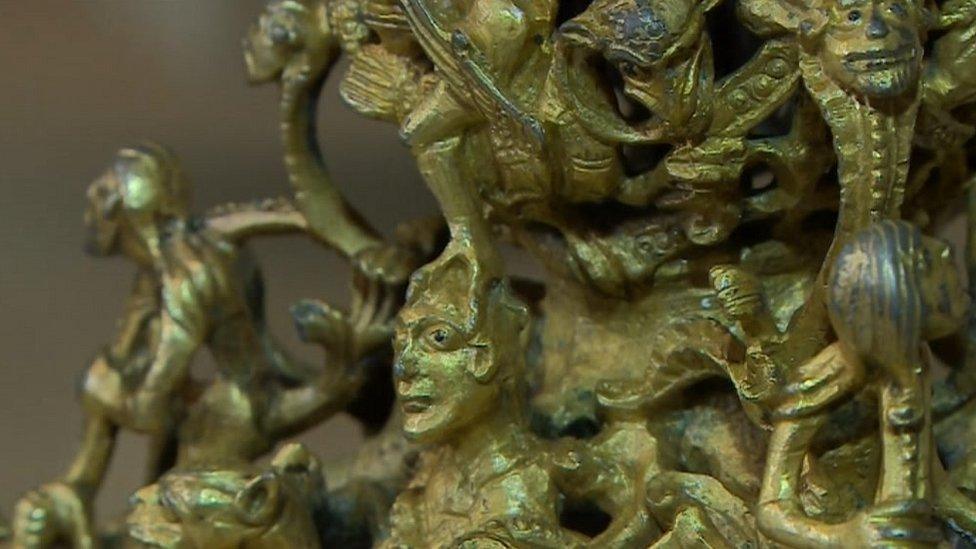
The candlestick is decorated with a menagerie of real and fantastic creatures
An inscription on the candlestick reads: "The devotion of Abbot Peter and his gentle flock gave me to the Church of St Peter of Gloucester".
It is decorated with a menagerie of real and fantastic creatures and its decorations have been interpreted as the struggle of vice and virtue, as the creatures strive to reach the light or sink into the darkness below.
The circumstances of how the candlestick left Gloucester are shrouded in mystery.
On 8 March 1122 St Peter's Abbey was destroyed by fire and the Anglo-Saxon Chronicle stated only a few books and three vestments survived intact.
The V&A has suggested the candlestick could have been looted during the fire, or not counted among the surviving objects because it had already left the Church of St Peter.
It eventually travelled to Le Mans Cathedral in France, and many years later was sold to the V&A in the 19th Century by a Parisian collector.
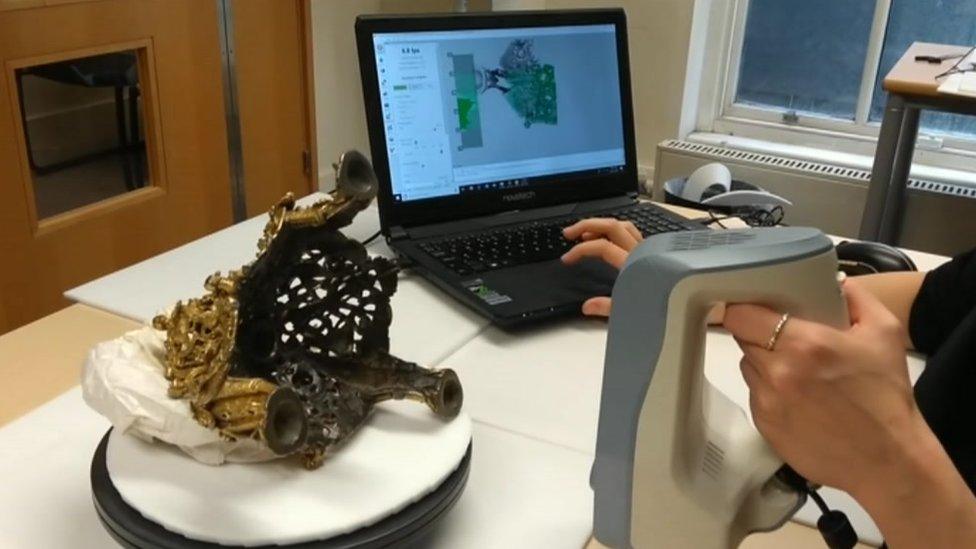
The candlestick was mapped by Dr Amelia Knowlson, a digital heritage expert specialising in 3D scanning
Gloucester Cathedral archivist Rebecca Phillips said: "It's been so long away from us, and been through such trials whilst it's been away as well.
"Who knows what it went through during the French revolution?
"It's lovely to have it back, and also it's now accessible to anyone of faith and no faith as well. The beauty of it is just gorgeous."
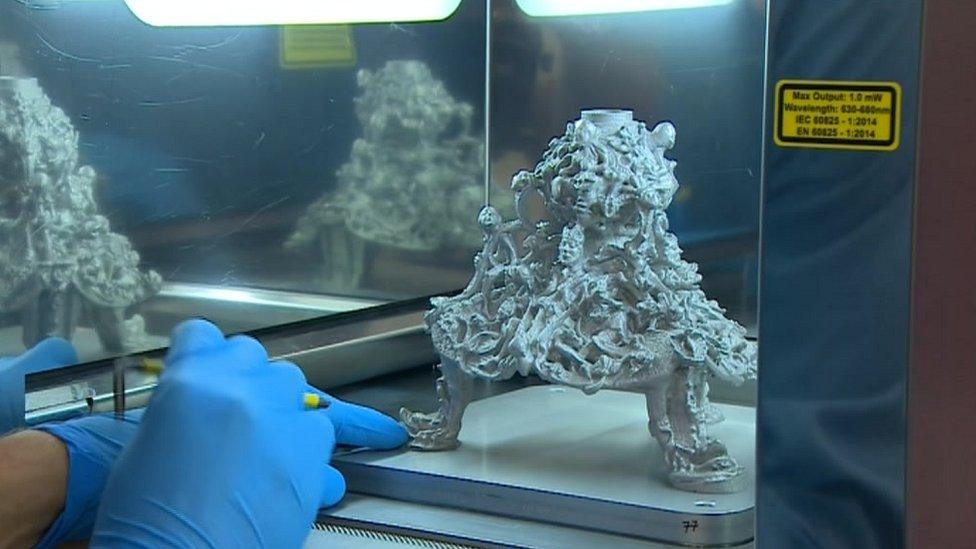
The replicas were formed using aluminium powder over several days
The replicas have been made by local engineering company Renishaw. Its engineers carefully scanned and mapped the candlestick using 3D printers before the replicas were formed using aluminium powder over several days.
They were then hand-finished to enhance the intricate detail of the decoration before a gold patina was applied to the grey surface of each piece at a foundry in Stroud.
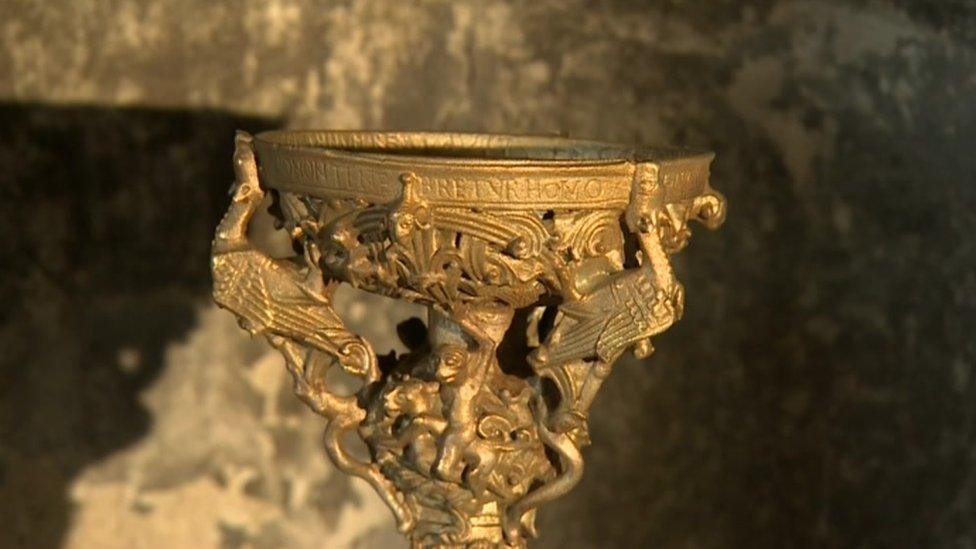
The replica candlesticks will be displayed in the Gallery chapel and the Treasury
Renishaw's Paul Govan described the work as "a privilege", and added: "I can see this technology being used a lot more for this type of work - replicating parts that are valuable and that you can let people touch."
The cathedral hopes to have the replicas installed before the Gloucester History Festival in September, when they will be the focus of a series of lectures and activities.
- Published6 March 2020
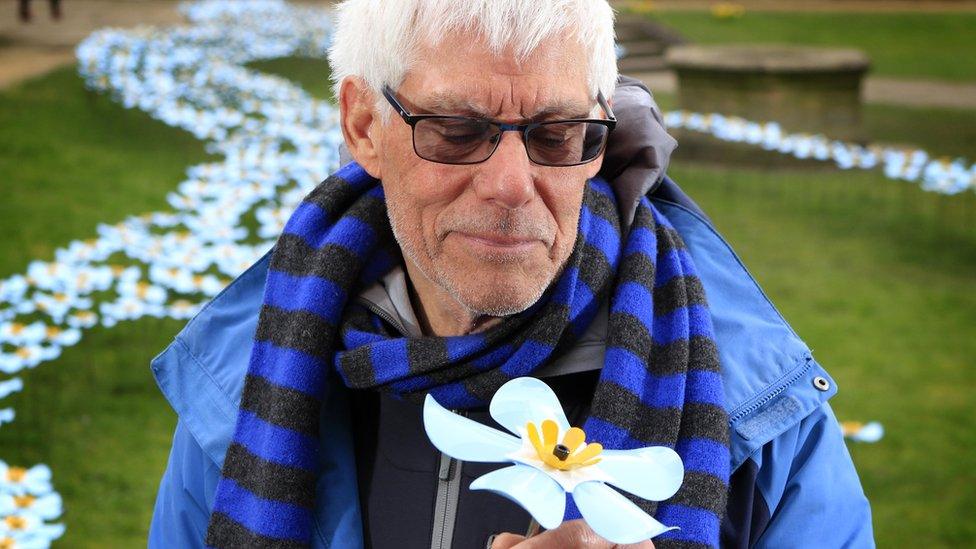
- Published14 January 2020
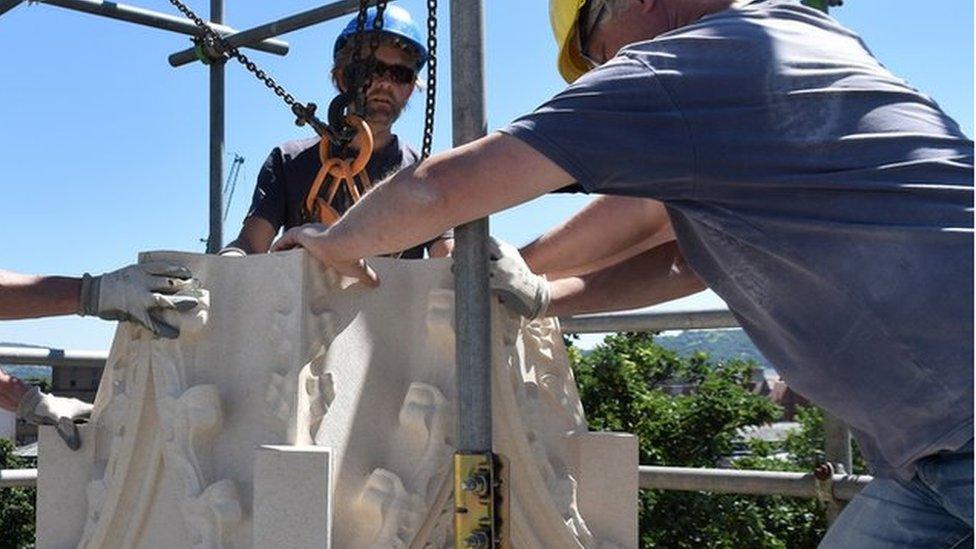
- Published13 December 2019
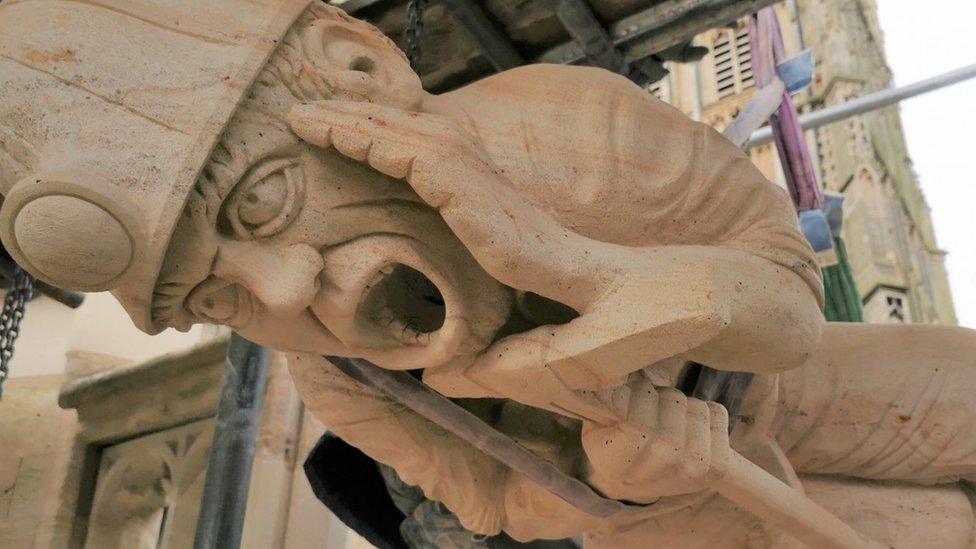
- Published17 June 2019
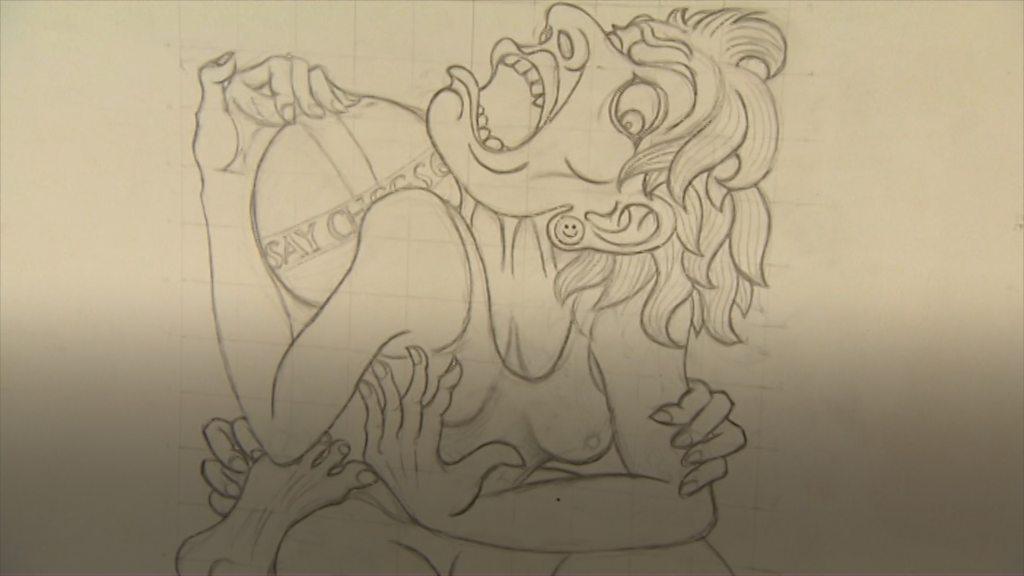
- Published4 December 2017
